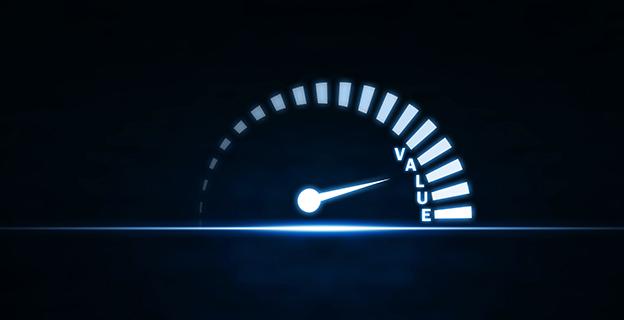5 Min Read • February 1, 2024
The Game-Changing Value of an Automotive CRM

The automotive industry is known for its love of acronyms and buzzwords. Most of the time we see dealers change focus without taking the time to vet or track the effectiveness of each move.
Word of mouth can be very powerful and even influence dealers to change their processes with the hope of gaining revenue and success at a faster rate. It can get overwhelming trying to decide what’s worth the investment and what’s simply a fad that’ll be gone by the next year.
What’s an Automotive CRM and Why Do Dealers Need One?
An automotive CRM software solution is made specifically for dealerships to manage customer relationships by organizing and keeping track of customer and prospect emails, phone calls, advertising, website interactions and in-store visits.
Data that’s stored in a CRM can be used to measure marketing strategy effectiveness, follow-up interactions with customers, and create an overall smoother experience for the dealership and car buyers.
While other traditional CRMs that aren’t crafted for dealers also manage customer relationships and interactions, a dealership CRM can help increase car sales by mining CRM data to find prospects that are more likely to buy a car, use artificial intelligence to help schedule test-drive appointments, and other dealership-specific interactions.
What’s the Difference Between a CRM vs. a DMS?
A CRM system is mainly a customer- and prospect-centric software solution while a DMS (Dealership Management System) manages the overall day-to-day operations of a dealership and is the source of truth for Accounting. Generally, CRM data is integrated with a DMS.
A Dealership CRM Is a Game-Changing Investment Here to Stay
A CRM system is the one application that dealers can be assured is here to stay. It houses personal information for your sold customers as well as your unsold prospects. This unified repository for customer data and engagement can help your dealership improve customer service, increase sales and streamline operations.

Here are some of the key benefits of using a CRM for automotive dealerships.
1. Better Customer Service
Automotive CRM software allows dealerships to centralize customer data and track all customer interactions. This provides a 360-degree view of the customer, enabling dealerships to provide more personalized and proactive service. CRM software can help dealerships
- Track customer communication history
- Identify and personalize customer preferences and interests
- Offer timely reminders for vehicle maintenance and service
2. Improved Lead Management
CRM software can effectively manage leads throughout the sales pipeline from initial contact to conversion. This helps dealerships
- Capture and organize leads from various sources and up types, such as phone calls, internet leads and showroom visits
- Assign leads to Sales reps based on their expertise or other criteria
- Track the progress of leads through the sales funnel
- Nurture leads with targeted marketing campaigns
3. Increased Sales
By improving customer service and lead management, a CRM can help dealerships increase sales as well as
- Convert more leads into customers
- Increase customer lifetime value
- Upsell and cross-sell additional products and services
- Retain existing customers through loyalty programs
4. Streamlined Operations
A CRM can automate many tasks and workflows, freeing up dealership staff to focus on more strategic work that can
- Reduce management and administrative time
- Improve communication and collaboration within and across departments
- Enhance efficiency and productivity
5. Data-Driven Decision-Making
A CRM can provide your dealership with valuable insights into customer behavior, sales trends and marketing effectiveness. This data can be used to make informed decisions about
- Product and service offerings
- Marketing campaigns
- Sales strategies
- Customer service initiatives
Even if you’re aware that you need a CRM and why, do you know how to use it effectively? A CRM can unlock the potential opportunities inside your store and deliver an overall better experience your customers are expecting. Without it, it’s virtually impossible to gauge the effectiveness of your follow-up processes, success of advertising spend, or the effectiveness of your staff collectively and individually.
Three Ways To Evaluate the Effectiveness of a CRM
When you begin digging into the effectiveness of a CRM, there are a few key items you should focus on first.
- Establish a workflow for each up type. An internet lead isn’t going to need the same follow-up as someone who came in to test drive but left without purchasing. Make sure each workflow is customized for your business needs and adjust if they no longer serve you.
- Determine your benchmarks and expectations. Start by establishing your appointment set and sold ratios for each up type. Once you decide the expectations for your store, pick one or two reports for your leaders to monitor daily.
- Set up a cadence of regular meetings. Check in with your leadership team to ensure the processes put in place are being adhered to and adjusted as needed to reach your sales goals.
By utilizing a robust CRM, you can create workflows that fit your customer and brand and by each up type. You can begin to track sales and revenue by advertising source and set benchmarks for your team. A CRM can go beyond a repository of information once you harness all of the tools available.

CRM Is Essential for Better Car Dealership Marketing
A CRM enables dealers to slice and dice customer information into target audiences for email, digital and social marketing campaigns. In fact, the return for email marketing alone can be as high as $36 for every dollar invested when done correctly. Here are a few ways you can use your CRM data to identify audiences:
- Prospects who test-drove a vehicle one year or more ago
- Customers coming up on the end of their lease term
- Customers who are in the buying process
You can use an email template builder and other built-in features to customize and create messages for those specific audiences.
AI for Automotive CRM Brings Immense Value
An AI solution that integrates with a CRM helps increase efficiency, manage leads and create an overall smoother and more enjoyable sales process. The Sales team is likely not available 24/7 to answer inquiries, as they’re focused on more high-value tasks like setting up test drives, talking with customers about their wants and payments terms, etc. This is where AI can help.
AI can chat and communicate with customers as well as prospects in a conversational, authentic way in real time and at all hours. It can also simplify lead management by automating lead follow-up processes, create a marketing list based on predictive modeling, and so much more.
How To Choose the Best CRM for your Auto Dealership
When you evaluate your partners and your business needs, it’s imperative to choose a CRM that meets the expectations of your dealership. The basics of follow-up and accountability will always be key to generating sales and success for your dealership. A CRM can provide your automotive dealership with a variety of benefits to improve customer service, increase sales, streamline operations and make data-driven decisions. Implement a CRM so your dealership can achieve a competitive advantage and long-term success.
Ready to explore if our CRM is right for your dealership? Request a demo.
Share This

Amber is responsible for the implementation and go-to-market strategies for current and new CRM offerings for CDK Global. With over 17 years of experience in the automotive industry, she’s excited to highlight dealership needs and support them with innovative solutions.









